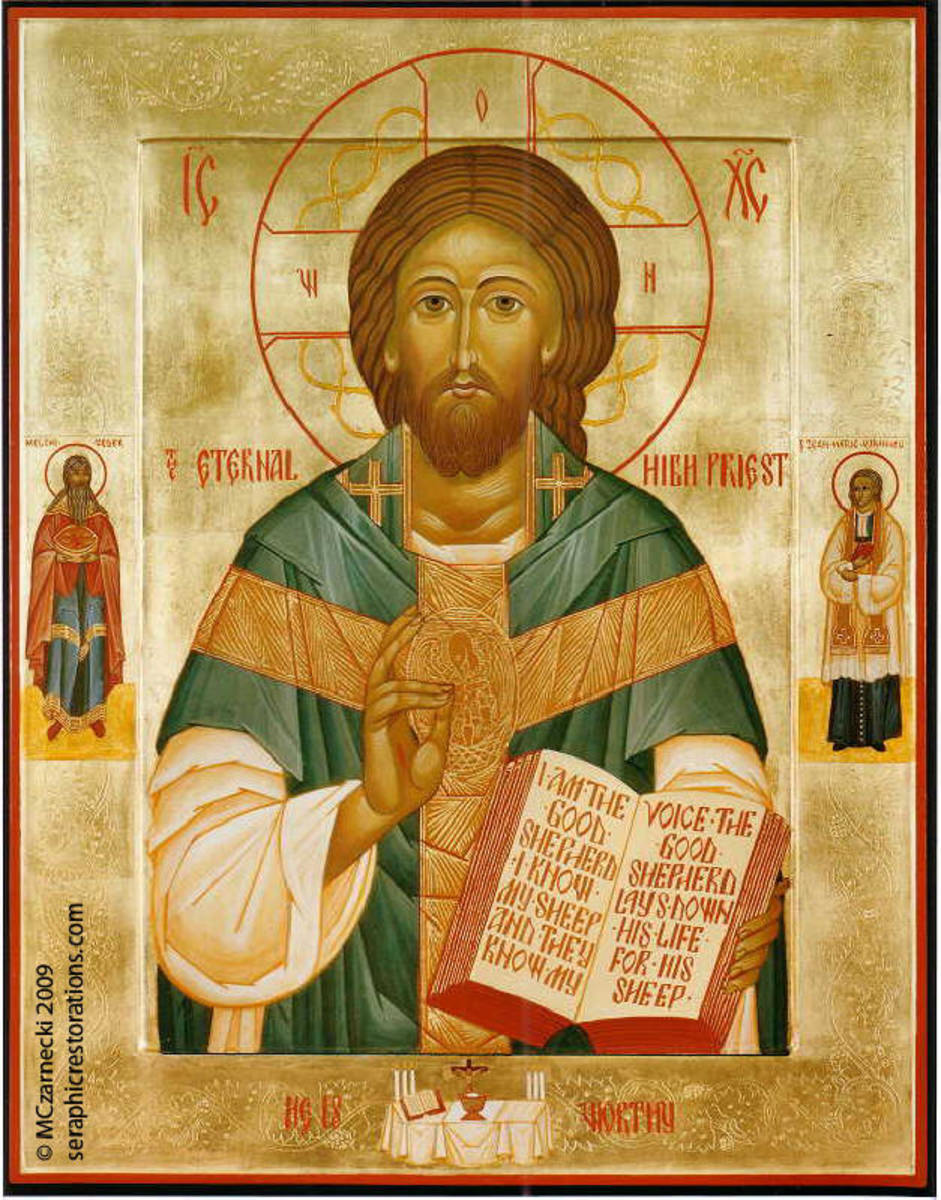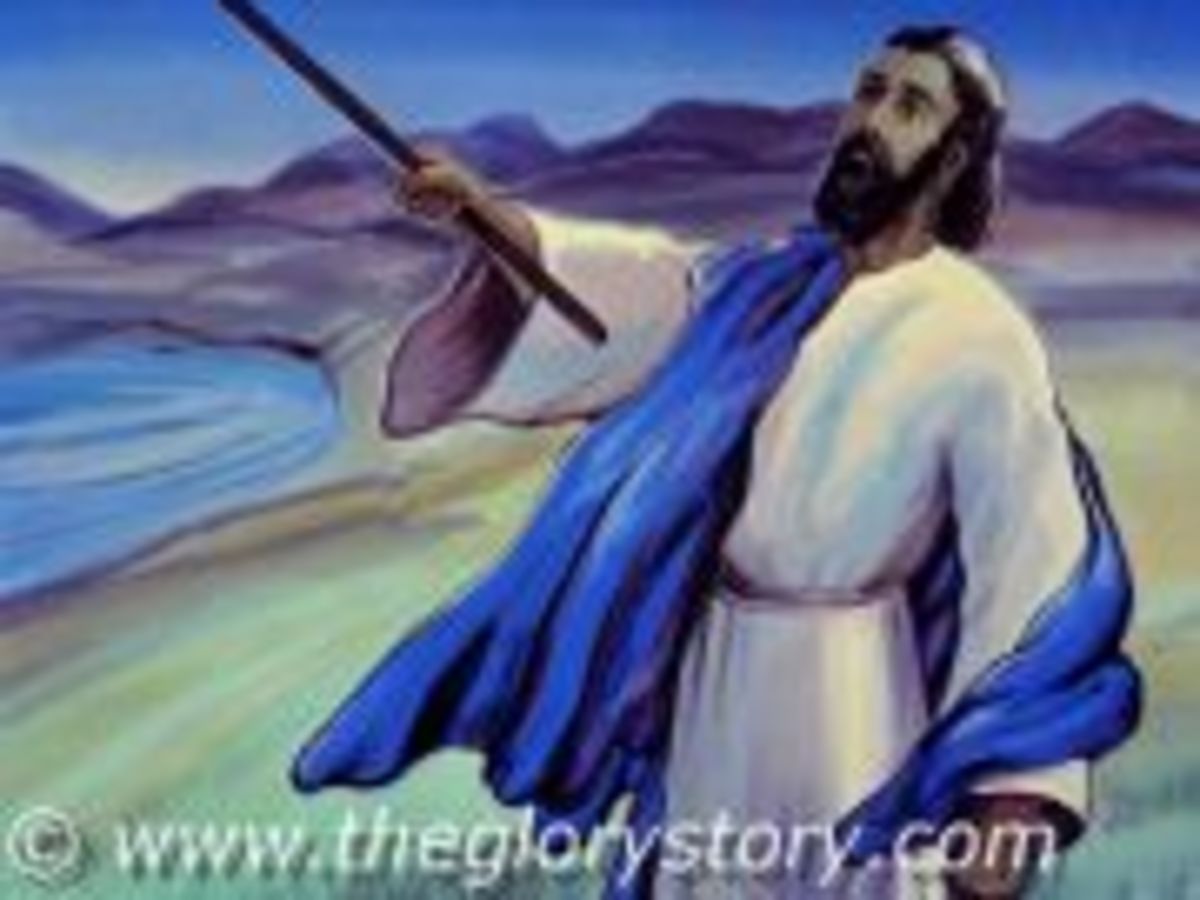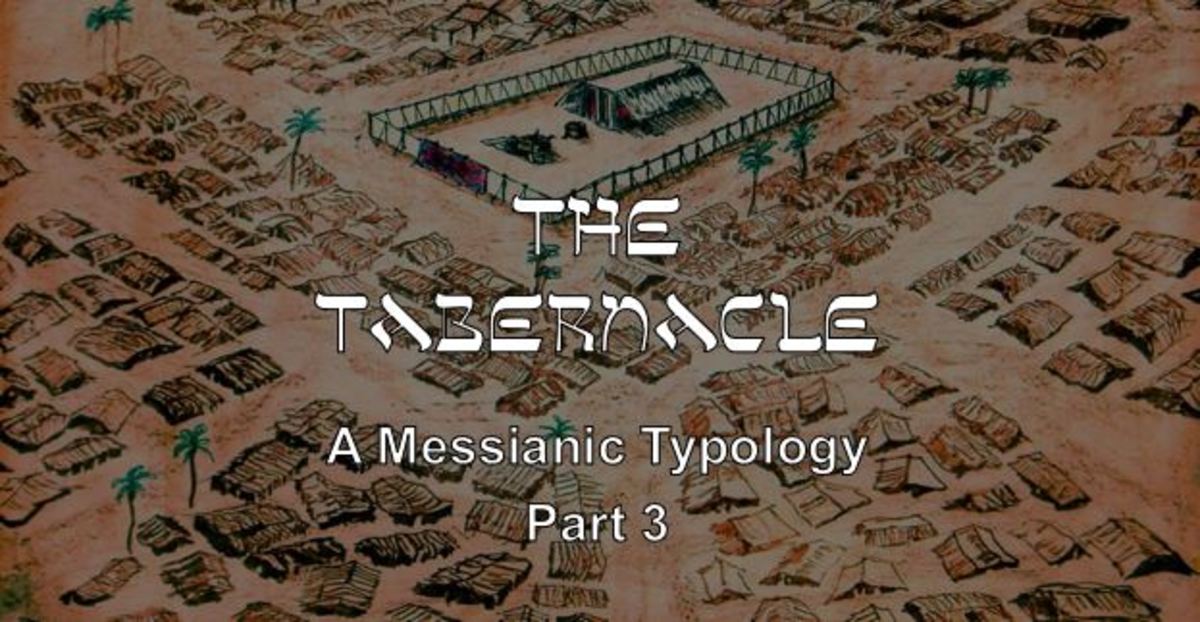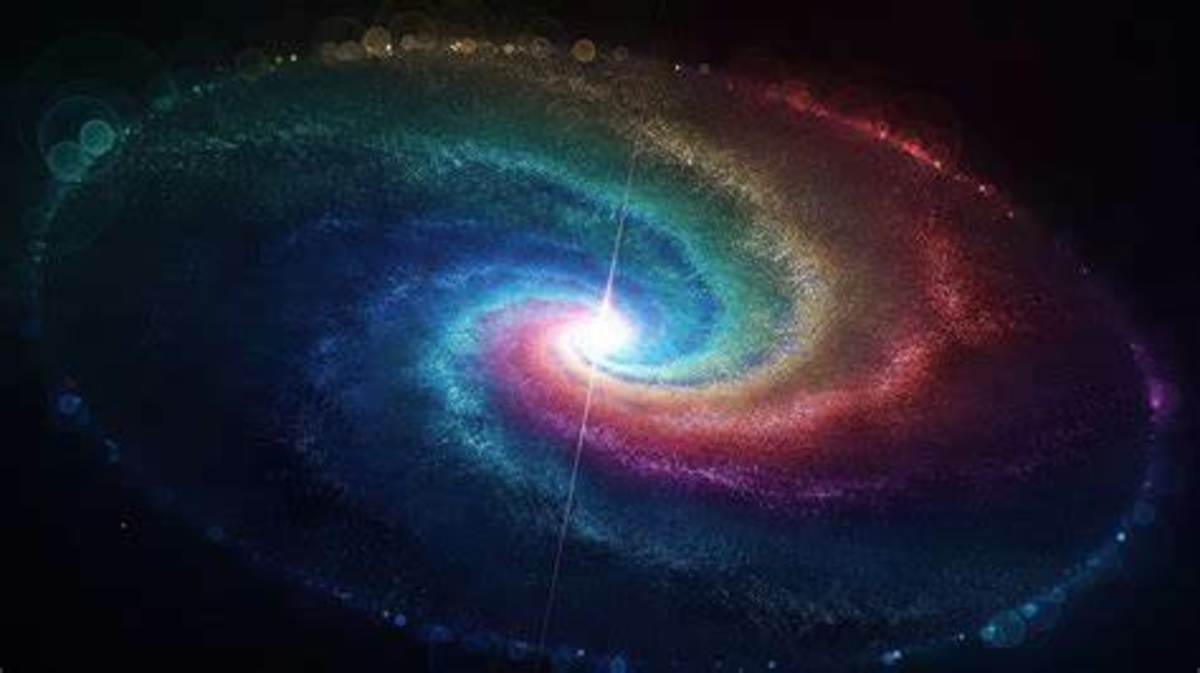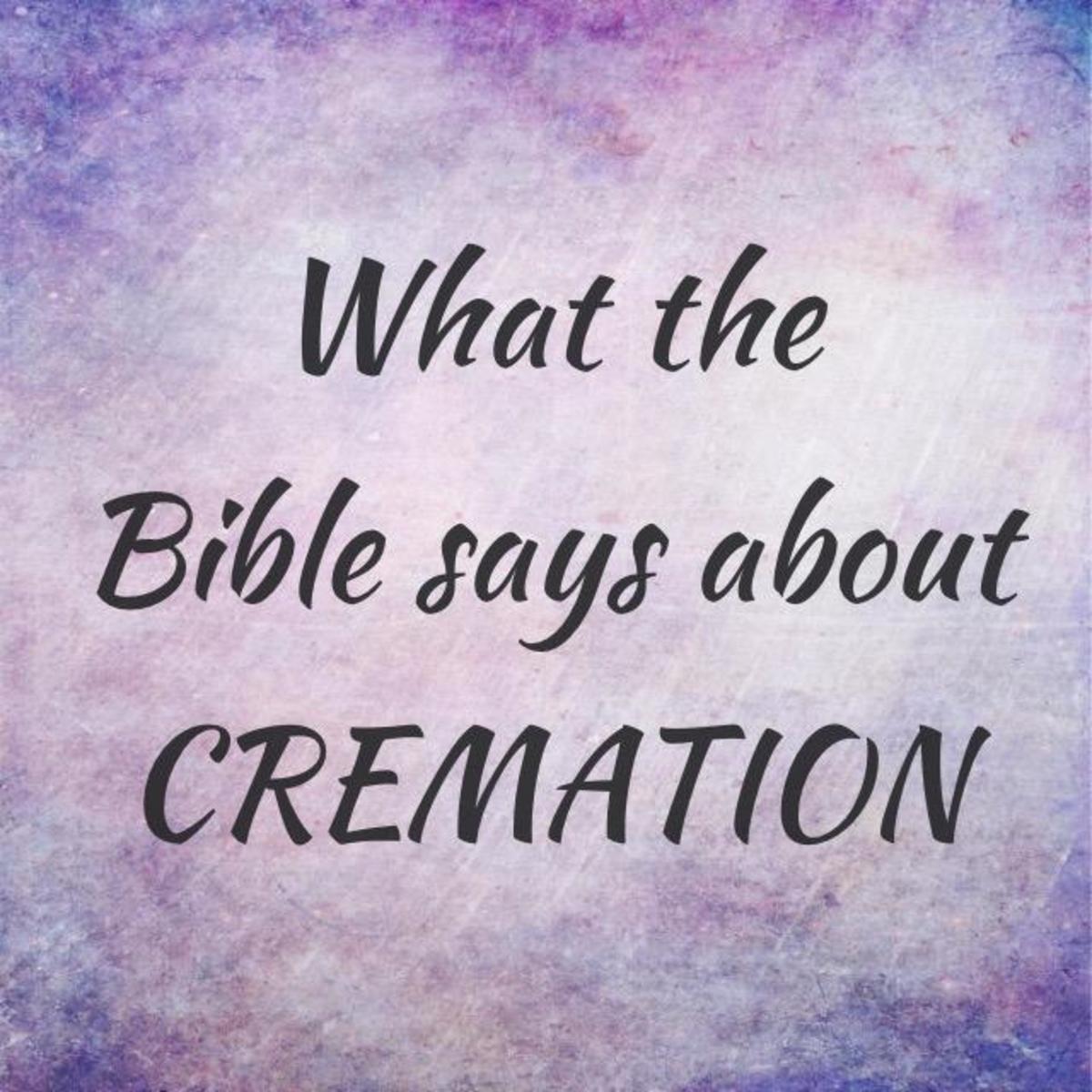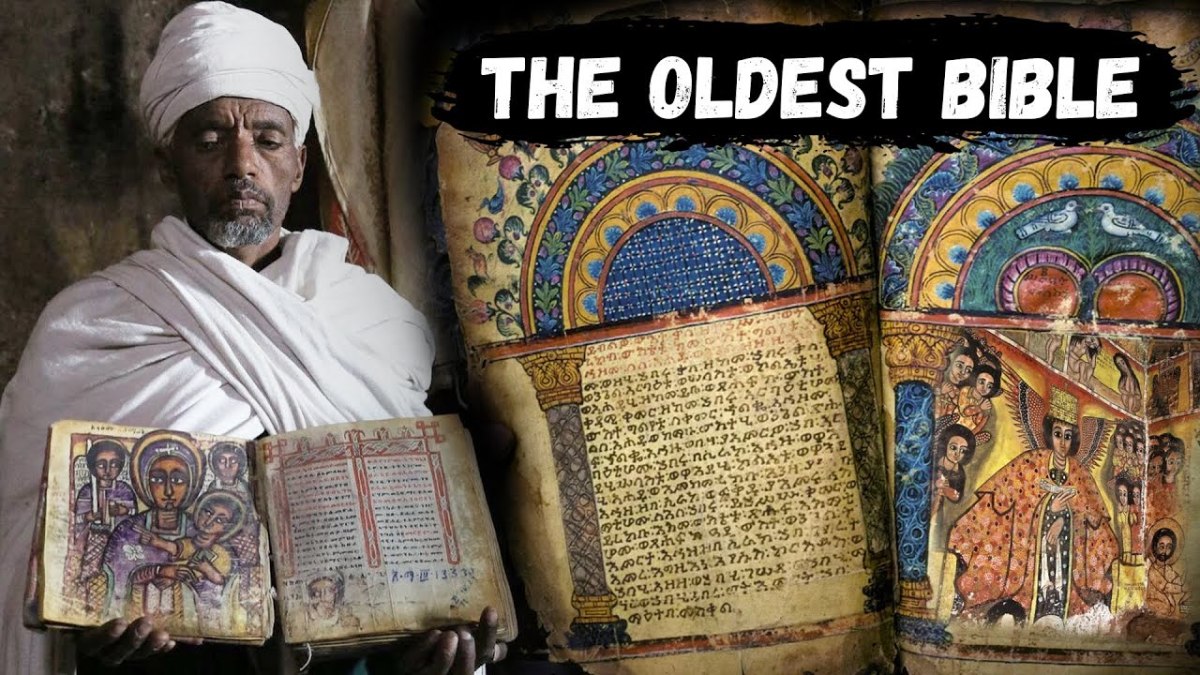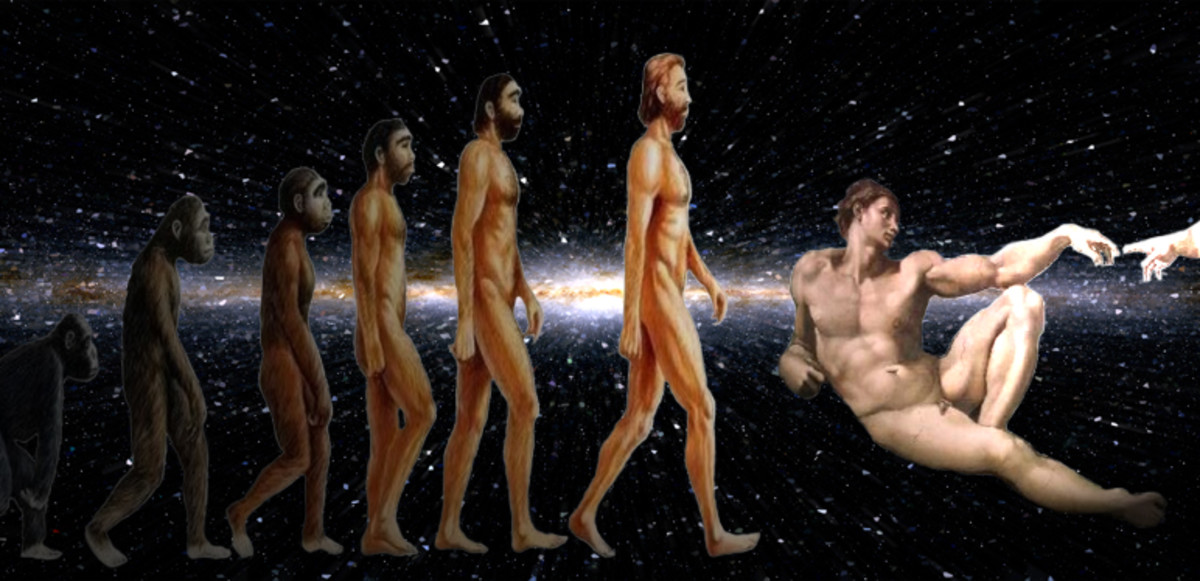Bible: What Does Leviticus 16-18 Teach Us About Yom Kippur and Blood Atonement?
Yom Kippur
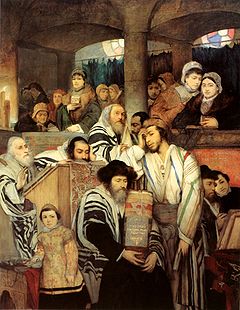
The Day of Atonement
After the death of Aaron’s two sons (v. 1; cf. Lev. 10:1, 2), the narrative resumes with a delineation of Yom Kippur.
First, however, Yahweh tells Moses that Aaron must not enter “inside the veil” whenever he pleased, lest he die (v. 2).
[It seems reasonable that Yahweh should institute a series of laws after this tragic incident with Nadab and Abihu occurred to protect other Israelites from sudden death because of ritual uncleanness].
But when he does come, he must bring a certain commodity with him—the blood of a young bull and of a young ram (v. 3)—, be properly cleansed, and appropriately attired in his priestly garments (v. 4).
With him Aaron must also take a congregational offering of two goats and a ram (v. 5).
[From which tribe or family does he take these latter animals?
The text merely says, “. . . from the congregation of the children of Israel.”]
First, he sacrifices the bull for his own and his house’s atonement (v. 6).
Then after presenting the goats before the LORD, Aaron casts lots for them; one he will sacrifice, and the other (the scapegoat) he will set free into the desert (vv. 7-10).
After killing the bull, the high priest takes a censer full of burning coals and two hands full of sweet incense inside the veil (vv. 11-12).
Burning the incense will create a cloud over the propitiatory and protect him from the LORD’s presence (v. 13).
Aaron subsequently sprinkles some of the bull’s blood on the east side of and before the mercy seat seven times (v. 14).
Next, he kills the first goat for the people and repeats the same sprinkling ritual he did with the bull (v. 15; cf. v. 9).
This service atones for the Holy Place and the tabernacle of meeting; no one must be in the latter site when Aaron makes atonement (vv. 16-17).
He performs the action on the altar, putting some blood on its horns and sprinkling some on the altar proper, thus setting it apart from Israel’s impurity (vv. 18-19).
The Site Where the Scapegoat Went
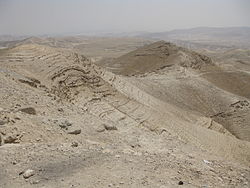
Frequency of Commemoration
view quiz statisticsThe Scapegoat
The next step involves taking the “scapegoat,” confessing Israel’s sins over it (by which he symbolically transfers their transgressions onto the animal by placing his hands on its head), and sending it away “by the hand of a suitable man” [vv. 20-21].
The goat bears the sins of the people into a solitary land (v. 22).
[Thus God sends Israel’s sins away; so disposed of, they will no longer constitute any barrier to fellowship.
The book of Hebrews (especially chapters seven, nine, and ten) discusses this day in relation to Jesus' substitutionary atoning sacrifice].
Now life must return to normal.
Aaron removes his priestly garments in the tabernacle of meeting, washes himself in a holy place, puts on his everyday garments, and offers burnt offerings both for himself and for the people.
In addition, he must make sure to burn all of the fat of the sin offering (vv. 23-25).
The man who released the goat washes his clothes, bathes, and returns to camp (v. 26).
Finally, those who burn the bull and goat sin offering carcasses outside the camp must also wash their clothes, bathe, and then return (vv. 27-28).
This ritual of atonement and cleansing occurs on one special day every year—the tenth day of the seventh month.
It is a day of humility/affliction and solemn rest for everyone, including visitors and strangers (vv. 29-31).
Every year the presiding priest must carry out this statute, making atonement for all holy things and the people of God (vv. 32-34).
The Altar of Sacrifice
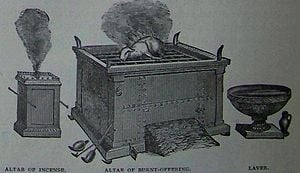
Leviticus 17
The LORD makes it very clear that not offering sacrificial animals at the tabernacle of meeting, whether killed inside or outside the camp, is a capital offense (vv. 1-4).
He prohibits Israel’s sacrificing to demons “after whom they have played the harlot,” but commands them to bring their peace offerings to the priest (vv. 5-7; cf. Paul’s word in 1 Cor. 10:20).
Yahweh expressly forbids all Israelites and all strangers from sacrificing burnt offerings and from eating blood without bringing them to the tabernacle of meeting (vv. 8-10).
Then He proclaims a truth of eternal importance: the blood makes atonement for the soul (cf. Heb. 9:22).
Its proper place is upon the altar; no one may eat of it on pain of death (vv. 11-14).
In the field the hunter must pour out the creature’s blood and cover it with dust (v. 13); anyone who eats a beast that died naturally or that carnivores killed must follow the procedure for unclean animals, or he will bear his guilt (vv. 15-16; cf. Lev. 11).
Purity Required
view quiz statisticsLeviticus 18
Yahweh again speaks to Israel about their need to be a separated people; they must not do what pagans do, but keep and observe His statutes, judgments, and ordinances, for He is their God (vv. 1-5a).
The LORD promises them “life” if they obey His word (v. 5b).
Now He becomes specific, commanding them to abstain from sexual impurity.
[God continually employs the phrase “uncover his nakedness” in this chapter (vv. 6-19).
Does this expression imply merely seeing someone naked, or does it extend to having sexual intercourse with that individual?]
To make His prohibitions perfectly clear, the LORD uses repetition.
No Israelites shall “uncover the nakedness” of anyone “near of kin”: mother, father, sister, stepsister, granddaughter, aunt, uncle, daughter-in-law, sister-in-law (vv. 6-16; cf. Gen. 9).
Verse seventeen seems to speak about having intercourse with the grandchildren of a “woman”; the English text does not specify what this term means.
Also forbidden are bigamous relationships with sisters, such as what Jacob had with Rachel and Leah (v. 18), and having relations during menstruation (v. 19).
The list of laws continues: no adultery (v. 20); no human sacrifice to idols-- here, Moloch (v. 21); no homosexuality (v. 22); no intercourse with animals (v. 23).
The nations are guilty of these sins and perversions; therefore, God is casting them out of the land (vv. 24-25).
Israel, their replacement, must not do these things, or the land will vomit them out as well (vv. 26-28).
Anyone doing these abominations will suffer capital punishment; only by keeping God’s ordinances will they survive (vv. 29-30).
© 2014 glynch1

